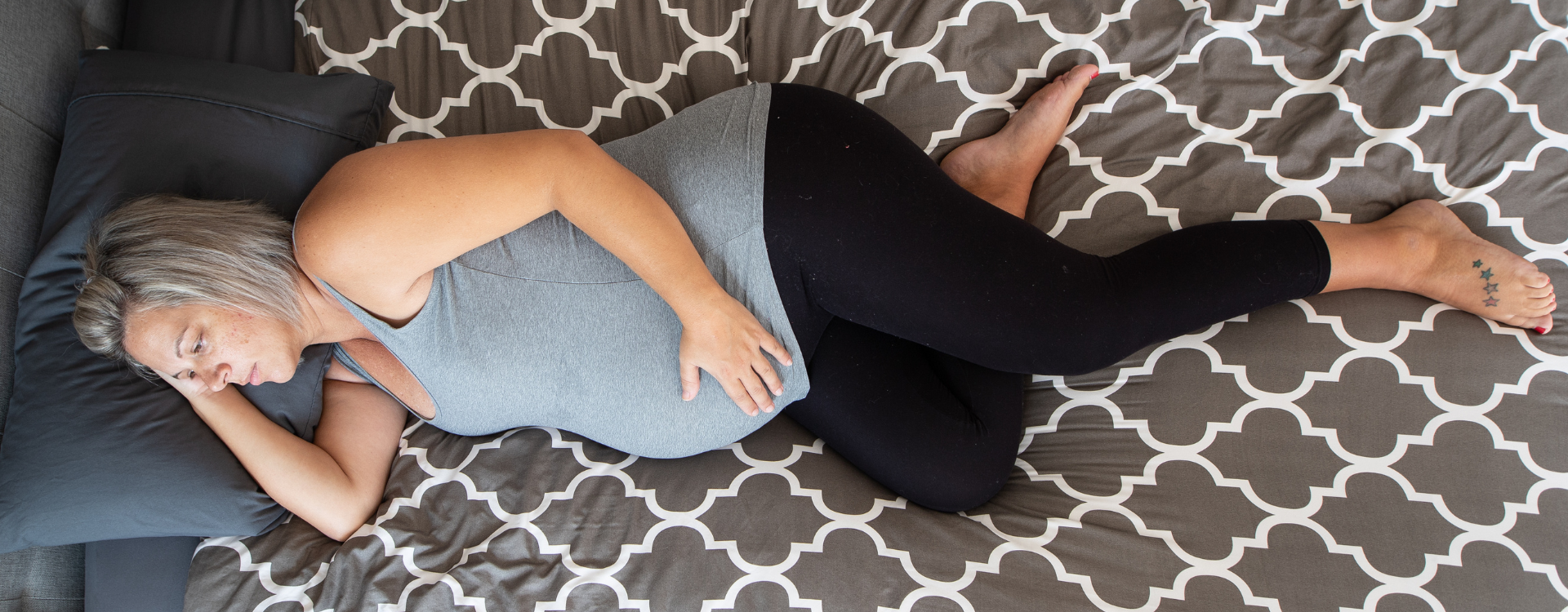Breastfeeding can be a special bonding experience for mom and baby. Unfortunately, it’s not uncommon for many moms to feel like breastfeeding is hard, especially in those early days as mama and baby are getting the hang of things.
Postpartum breast pain and nipple soreness, especially during the first few days, or even weeks, of breastfeeding, is common for some moms. Fortunately, there are ways to ease your discomfort as your body and breasts adapt.
Here are six of our top breast care tips, as well as some of our first time mom breastfeeding essentials, to help get your breastfeeding journey off to a great start.
Prep during your pregnancy
It’s easy to feel nervous about breastfeeding if this is new territory for you. Luckily, there are some things you can do ahead of time while you’re pregnant to help you feel more prepared for what to expect:
- Take some time during your pregnancy to do a little research if you can.
- Reach out to your support system for help and encouragement.
- Stock up on the essentials in advance so you’re prepared when you get home with your little one.
Check baby’s position and latch
Ensuring your little one is in a proper feeding position and has a good latch will not only help ease nipple pain and discomfort, it will also allow your baby to breastfeed more effectively and fully empty your breasts. This can ultimately help lead to a strong milk supply and reduce your risk for clogged milk ducts or mastitis.
A quality nipple cream, like Lanolin Nipple Cream, can be a great way to soothe and protect dry, sore nipples while you and your baby are figuring out your new breastfeeding routine.
Follow nursing sessions with cold therapy
Between breastfeeding sessions, your breasts may feel sore and swollen. An ice pack or cold compress (like our Breast Therapy Packs) can help reduce the pain and swelling. They’re also useful in relieving the discomfort from breast engorgement during these early days.
Feed frequently
Your newborn’s stomach is very small, so while they may not be consuming much within the first few days, their stomach will grow quickly. Frequent feedings will help stimulate your milk production and increase your milk supply as the demand increases. (Your milk supply is based on a supply and demand system, so the more often you feed, the more milk you will make!) This will also help reduce your risk for developing clogged milk ducts or mastitis, which are often caused by poor drainage.
A silicone breast pump is a must-have item to help collect the leaking milk from the opposite breast during these frequent nursing sessions. This milk can be stored or frozen in breast milk storage bags so you have a stash saved up when needed. (You’ll be shocked at how quickly this milk can add up!).
Change your nursing pads frequently
Nursing pads, such as Lansinoh's Stay Dry Disposable Nursing Pads, can be placed in your bra to protect against leaking milk and help keep you dry all day and night. Changing your nursing pads frequently, especially when they get wet, will help reduce your risk of infections such as mastitis and thrush, a type of yeast infection that can occur in the nipple or breast.
First-time mom essentials
Having the essentials already on-hand can make your experience a little easier — because let’s face it, breastfeeding can be hard while you’re getting the hang of it. All of our favorites from this article can be found in our new Breastfeeding Essentials Kit, which includes five products to help you begin breastfeeding with confidence.)
Make breast care a priority, especially in the early days
The first few days of breastfeeding can be a challenge for many new moms. After all, breastfeeding is completely new for both you and your little one. Proper breast care can help ease the transition to make it a more enjoyable and successful experience for you and your baby. You’ve got this, mama!
All content found on the Lansinoh.com website, including: text, images, audio, or other formats were created for informational purposes only. The content is not intended to be a substitute for professional medical advice, diagnosis, or treatment. Always seek the advice of your physician or other qualified health provider with any questions you may have regarding a medical condition. Never disregard professional medical advice or delay in seeking it because of something you have read on this website.









